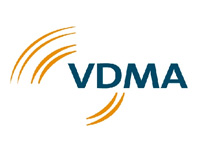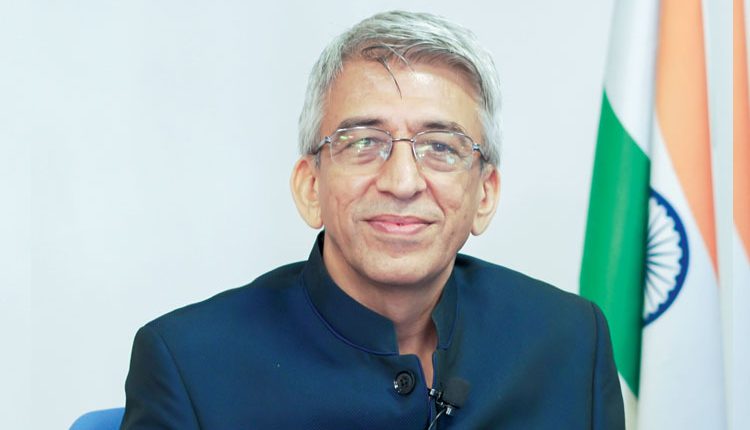VDMA, the German Engineering Federation, is an important voice for the machinery and equipment manufacturing industry. It serves as the largest networking platform for the industry in Europe. In India VDMA, under the leadership of managing director Rajesh Nath, has been working closely with the Indian government to shape the policies that enhance industrial growth in the country. VDMA India has made significant contributions to the Indian manufacturing sector by facilitating technology transfers and fostering collaboration with German industry. VDMA India recently organized an Indo-German Business Forum in Mumbai which addressed topics which are highly relevant to India’s manufacturing sector as the country strives to become a $10 trillion economy. Incidentally, Rajesh Nath has completed 25 years of service with VDMA. The effervescent RN takes off time to converse with Engineering Review. Excerpts:
Q. Congratulations on completing 25 years with VDMA India. How has your journey been, and what key milestones would you highlight during your tenure?
Thank you! My journey with VDMA India has been incredibly fulfilling and rewarding. Over the past 25 years, I have had the privilege of witnessing and contributing to the growth of the engineering sector in India. One of the key milestones I would highlight is the successful expansion of VDMA’s presence in India, from a small office to a robust platform, four functional offices in the country and a network, supporting around 550-600 member companies today.
We have also worked closely with the Indian government to shape policies that enhance industrial growth, particularly around Make in India and the push for digitalization and automation in manufacturing. Our focus on technology transfer and knowledge exchange has helped many Indian companies modernize their processes and become more competitive globally.
Another milestone would be the growth of engineering exports. India’s engineering exports crossed $80 billion in FY 2023, a significant achievement, and we at VDMA have played a crucial role in this by connecting German machinery manufacturers with Indian businesses. Lastly, the growth of events like the VDMA India Annual Summit, which attracts thought leaders and key stakeholders from both India and Germany, has been a major highlight, fostering collaboration and innovation in the sector.
It’s been an enriching experience, and I’m proud of the contributions we’ve made to the industry and the long-lasting relationships we’ve built over the years.
Q. IMTEX-2025 is set to be a landmark event. What role do you see VDMA India playing in enhancing Indo-German collaboration in manufacturing through such expos?
IMTEX-2025 will indeed be a landmark event, and as one of the largest trade fairs in the region, IMTEX provides an ideal platform for showcasing cutting-edge technology, fostering business partnerships, and promoting innovation in manufacturing.
As a visitor, we see IMTEX as a critical platform to explore and understand the latest technological trends and innovations in the industry. It will provide an opportunity for us to engage with German manufacturers and Indian businesses, strengthening the ties between both markets.One of our key roles will be to facilitate meaningful discussions around the integration of advanced manufacturing technologies, particularly in areas like automation, digitalization, and Industry 4.0. We aim to connect Indian companies with German suppliers and innovators to encourage technology transfer, knowledge exchange, and partnerships that can help elevate India’s manufacturing capabilities.
Q. VDMA has been instrumental in fostering synergy across various sectors. Could you share specific examples of how VDMA’s efforts have positively impacted the Indian manufacturing industry?
VDMA India has made significant contributions to the Indian manufacturing sector by facilitating technology transfer and fostering collaboration with German industry. One key impact has been the introduction of advanced German manufacturing technologies, such as automation, robotics, and precision machinery, which have helped Indian companies enhance productivity and competitiveness. Through initiatives like the VDMA India Mechanical Engineering Summits, countless technology events, webinars, roundtables, workshops, and so on, VDMA has provided valuable platforms for Indian manufacturers to engage with German experts, enabling them to adopt best practices in digitalization and smart manufacturing. Additionally, VDMA’s advocacy in policy discussions has supported the Indian government’s initiatives like ‘Make in India,’ ensuring a favourable environment for industrial growth and innovation. These efforts have played a crucial role in modernizing India’s manufacturing landscape.
Q. With the rapid adoption of Industry 4.0 technologies, how is VDMA supporting its members and partners in navigating this transformation?
VDMA India is actively supporting its members and partners in navigating the Industry 4.0 transformation by providing a range of resources, knowledge-sharing platforms, and networking opportunities. We organize workshops, webinars, and conferences focused on key Industry 4.0 technologies like automation, IoT, AI, and data analytics, helping members understand how to implement these innovations in their operations.
Additionally, we facilitate collaborations between German technology providers and Indian manufacturers, enabling technology transfer and customized solutions. VDMA also advocates for favorable policies that promote digitalization, helping members align with both global trends and Indian governmental initiatives. By guiding our members through this transformation, we help them stay competitive in an increasingly digital and interconnected world.
Q. Sustainability and digitalization are key trends in manufacturing. What initiatives has VDMA undertaken to promote these practices among its member companies?
VDMA India has been a strong advocate for both sustainability and digitalization in manufacturing, recognizing their importance for long-term growth and competitiveness. To promote these practices, VDMA has launched several initiatives.
For sustainability, VDMA actively engages its members in adopting energy-efficient technologies, waste reduction methods, and eco-friendly production processes. We regularly organize workshops and seminars focused on sustainable manufacturing, carbon footprint reduction, and the implementation of circular economy principles. By showcasing best practices from German companies, we help Indian manufacturers align with global environmental standards.
On the digitalization front, VDMA supports its members through training programs and knowledge-sharing platforms on technologies like IoT, AI, and automation. We also facilitate partnerships between German technology providers and Indian manufacturers to accelerate the adoption of smart manufacturing solutions. These initiatives help our members integrate Industry 4.0 technologies, improving efficiency and reducing costs while staying competitive in a rapidly evolving global market.
Q. The Indo-German Business Forum organized recently addressed topics like India towards 10 trillion USD economy, metrology, data analytics, and digital security. How do these themes align with the challenges and opportunities you see in the Indian manufacturing landscape?
The themes discussed at the Indo-German Business Forum are highly relevant to India’s manufacturing sector as it strives to become a $10 trillion economy. Achieving this goal requires embracing advanced technologies to improve productivity, reduce costs, and enhance global competitiveness. VDMA India plays a key role in this transformation by promoting the adoption of Industry 4.0 technologies, such as automation, AI, and IoT. Metrology ensures precision and adherence to international quality standards, crucial for boosting export potential. Data analytics optimizes operations and decision-making, improving efficiency across the supply chain. As manufacturing becomes more connected, digital security becomes essential to safeguard processes and data from cyber threats. These themes are integral to overcoming existing challenges and creating new growth opportunities, ensuring that Indian manufacturers can compete effectively in the global market. VDMA’s efforts are instrumental in driving this digital and sustainable transformation.
Q. What are some of the key challenges you foresee for Indian and German manufacturers collaborating in the current global environment, and how can organizations like VDMA address these?
Key challenges for Indian and German manufacturers collaborating today include supply chain disruptions, differing regulatory standards, and the digital maturity gap. Geopolitical tensions and trade barriers complicate supply chains, while aligning with varying standards in quality, sustainability, and data security can be difficult. Additionally, Indian manufacturers may struggle with adopting advanced Industry 4.0 technologies due to infrastructure and skill gaps.
VDMA addresses these challenges by facilitating knowledge exchange through workshops and training, promoting alignment on best practices and standards, and advocating for policies that support cross-border collaboration. This helps bridge gaps and enables both countries to leverage their strengths in manufacturing.
Q. Looking ahead, what are your strategic goals for VDMA India to strengthen its contribution to the Indian machinery and equipment manufacturing sector?
As we move ahead, VDMA India’s strategic goals are focused on strengthening its contribution to the Indian machinery and equipment manufacturing sector. First, we aim to accelerate the adoption of Industry 4.0 technologies by supporting Indian manufacturers in integrating automation, AI, IoT, and data analytics into their operations. This will enhance productivity, reduce costs, and help Indian companies remain competitive on the global stage. Second, we will continue fostering collaboration between German and Indian manufacturers, promoting technology transfer, joint ventures, and knowledge exchange. By acting as a bridge, VDMA India helps Indian businesses access advanced German technologies to upgrade their processes and meet global standards. Lastly, we will engage actively with Indian government bodies to advocate for policies that support sustainable manufacturing, digital transformation, and infrastructure development, ensuring a favorable environment for growth & innovation.

For more information,
www.vdma.org




